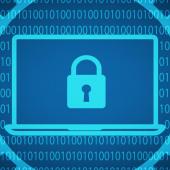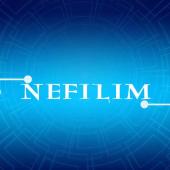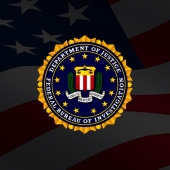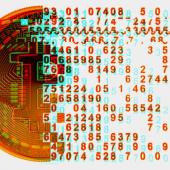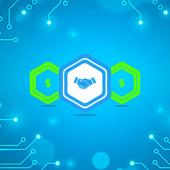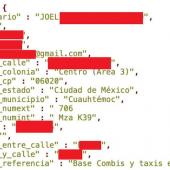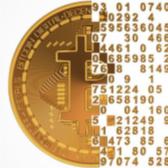-
Elon Musk confirmed Russian's plans to extort Tesla
The FBI thwarted the plans of 27-year-old Russian national Egor Igorevich Kriuchkov to recruit an insider within Tesla's Nevada Gigafactory, persuade him to plant malware on the company's network, and then ransom Tesla under threat that he would leak data stolen from their systems.
- August 28, 2020
- 07:17 AM
 0
0
-
DarkSide Ransomware hits North American real estate developer
North American land developer and home builder Brookfield Residential is one of the first victims of the new DarkSide Ransomware.
- August 25, 2020
- 12:08 PM
 0
0
-
University of Utah hit by ransomware, pays $457K ransom
The University of Utah has paid a $457,000 ransomware to prevent threat actors from releasing files stolen during a ransomware attack.
- August 20, 2020
- 07:35 PM
 1
1
-
New AgeLocker Ransomware uses Googler's utility to encrypt files
A new and targeted ransomware named AgeLocker utilizes the 'Age' encryption tool created by a Google employee to encrypt victim's files.
- July 13, 2020
- 09:57 PM
 1
1
-
Surge of MongoDB ransom attacks use GDPR as extortion leverage
A flood of attacks is targeting unsecured MongoDB servers and wiping their databases. Left behind are notes demanding a ransom payment, or the data will be leaked, and the owners reported for GDPR violations.
- July 02, 2020
- 03:37 PM
 0
0
-
Extortionists threaten to destroy sites in fake ransom attacks
Scammers are targeting website owners with blackmail messages asking them to pay ransoms between $1,500 and $3,000 in bitcoins to avoid having their sites' databases leaked and their reputation destroyed.
- June 14, 2020
- 10:07 AM
 0
0
-
Ransomware now demands extra payment to delete stolen files
A ransomware family has begun a new tactic of not only demanding a ransom for a decryptor but also demanding a second ransom not to publish files stolen in an attack.
- May 13, 2020
- 10:51 AM
 0
0
-
RagnarLocker ransomware hits EDP energy giant, asks for €10M
Attackers using the Ragnar Locker ransomware have encrypted the systems of Portuguese multinational energy giant Energias de Portugal (EDP) and are now asking for a 1580 BTC ransom ($10.9M or €9.9M).
- April 14, 2020
- 01:35 PM
 0
0
-
New Nefilim Ransomware Threatens to Release Victims' Data
A new ransomware called Nefilim that shares much of the same code as Nemty has started to become active in the wild and threatens to release stolen data.
- March 17, 2020
- 12:28 PM
 0
0
-
FBI Says $140+ Million Paid to Ransomware, Offers Defense Tips
Through the analysis of collected ransomware bitcoin wallets and ransom notes, the FBI states that victims have paid over $140 million to ransomware operators over the past six years.
- February 27, 2020
- 10:48 AM
 0
0
-
DoppelPaymer Ransomware Sells Victims' Data on Darknet if Not Paid
The DoppelPaymer Ransomware is the latest family threatening to sell or publish a victim's stolen files if they do not pay a ransom demand.
- February 03, 2020
- 11:21 AM
 3
3
-
Ransomware Bitcoin Wallet Frozen by UK Court to Recover Ransom
A victim's insurance company convinced the UK courts to freeze a bitcoin wallet containing over $800K worth of a ransomware payment.
- January 28, 2020
- 01:41 PM
 2
2
-
Ransomware Attackers Offer Holiday Discounts and Greetings
To celebrate the holidays, ransomware operators are providing discounts or season's greetings to entice victims into paying a ransom demand.
- January 02, 2020
- 05:30 AM
 0
0
-
Ransom Note Replaces 2.1M Customer Records on Open MongoDB
Hackers on the prowl for unsecured databases found a publicly accessible MongoDB instance and replaced the almost 1.2 million sensitive records it stored with a ransom note.
- August 02, 2019
- 11:34 AM
 0
0
-
Attackers Are Wiping Iomega NAS Devices, Leaving Ransom Notes
Attackers are deleting files on publicly accessible Lenovo Iomega NAS devices and leaving ransom notes behind. These ransom notes state that the attackers will give the files back if a bitcoin ransom is paid.
- July 29, 2019
- 01:02 PM
 1
1
-
No More Ransom Success Story: Saves $108+ Million in Ransomware Payments
Today marks the third anniversary of No More Ransom and through its partners from the public and private sectors, law enforcement, academia, and researchers, the project has been able to help hundreds of thousands, if not millions, of victims get their encrypted files back for free.
- July 26, 2019
- 11:39 AM
 3
3
-
Monroe College Hit With Ransomware, $2 Million Demanded
A ransomware attack at New York City's Monroe College has shutdown the college's computer systems at campuses located in Manhattan, New Rochelle and St. Lucia.
- July 12, 2019
- 07:45 AM
 3
3
-
Radiohead Releases OK Computer Sessions After Hack, Won't Pay Ransom
Alternative rock band Radiohead released 18 tracks of OK Computer sessions after hackers stole several archived mini discs from Thom Yorke, the band's lead singer and main songwriter.
- June 11, 2019
- 09:36 AM
 0
0
-
Over 12,000 MongoDB Databases Deleted by Unistellar Attackers
Over 12,000 unsecured MongoDB databases have been deleted over the last three weeks, with only a message left behind asking the owners of the databases to contact the cyber-extortionists to have the data restored.
- May 17, 2019
- 08:37 AM
 1
1



